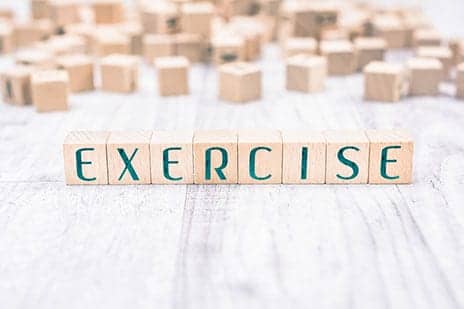Performing aerobic exercise, such as walking or bicycle riding, for 35 minutes three times per week may improve the thinking skills in older adults with cognitive impairments, according to a study published recently in Neurology, the medical journal of the American Academy of Neurology.
After 6 months of exercise, study participants’ scores on thinking tests improved by the equivalent of reversing nearly 9 years of aging, the researchers suggest.
“The results are encouraging in that in just 6 months, by adding regular exercise to their lives, people who have cognitive impairments without dementia may improve their ability to plan and complete certain cognitive tasks,” says study author James A. Blumenthal, PhD, of Duke University Medical Center in Durham, NC.
In the study, researchers looked at people who had cognitive impairments without dementia, which is defined as having difficulty concentrating, making decisions, or remembering, but not severe enough to be diagnosed with dementia.
The study found that exercise improved thinking skills called executive function. Executive function is a person’s ability to regulate their own behavior, pay attention, organize and achieve goals. The study found no improvement in memory.
The study involved 160 people with an average age of 65 and risk factors for heart disease, such as hypertension, who did not have dementia but reported problems with thinking skills. All participants were identified as having cognitive impairments without dementia and were sedentary at the start of the study, explains a media release from the American Academy of Neurology.
Researchers examined the effects of both exercise and diet, specifically the Dietary Approaches to Stop Hypertension (DASH) diet, which is a low sodium, high fiber diet rich in fruits and vegetables, beans, nuts, low fat dairy products, whole grains, and lean meats. The DASH diet was designed specifically for individuals with high blood pressure.
Participants were randomly assigned to one of four groups: aerobic exercise alone; DASH diet alone; both aerobic exercise and the DASH diet; or health education, which consisted of educational phone calls once every 1 or 2 weeks. People assigned to the exercise groups exercised three times a week for 45 minutes each session, which included 10 minutes of warm-up exercises and 35 minutes of aerobic exercise, such as walking, jogging, or cycling on a stationary bicycle.
At both the beginning and end of the 6-month study, researchers evaluated participants’ thinking and memory abilities with standardized cognitive testing, cardiorespiratory fitness with treadmill stress testing, and heart disease risk factors with screenings for blood pressure, blood glucose, and lipids. They also used questionnaires and food diaries to measure how closely the participants followed the DASH diet.
Researchers found that participants who exercised showed significant improvements in thinking skills when compared to those who did not exercise. Those who took part in both the exercise and diet had average scores of nearly 47 points on the overall tests of executive thinking skills, compared to an average score of about 42 points for those with exercise and diet alone and about 38 points for those who just received health education. There was no improvement in participants who only consumed the DASH diet, although those who exercised and consumed the DASH diet had greater improvements compared to health education controls, the release continues.
To illustrate, Blumenthal explained that at the start of the study, the participants had average scores for select subtests of executive function for people who were age 93, which was 28 years older than their actual chronological age. After 6 months, participants who exercised and followed the DASH diet saw their average executive function scores correspond with people who were age 84, a 9-year improvement. For those who received only health education, their performance on executive function tests worsened by a half year from their scores at the start of the study.
Although this may suggest added benefit of the DASH diet when combined with exercise, Blumenthal says a limitation of the study was that the number of participants was relatively small and these findings should be interpreted with caution.
“More research is still needed with larger samples, over longer periods of time to examine whether improvements to thinking abilities continue and if those improvements may be best achieved through multiple lifestyle approaches like exercise and diet,” Blumenthal concludes.
[Source(s): American Academy of Neurology, EurekAlert]



